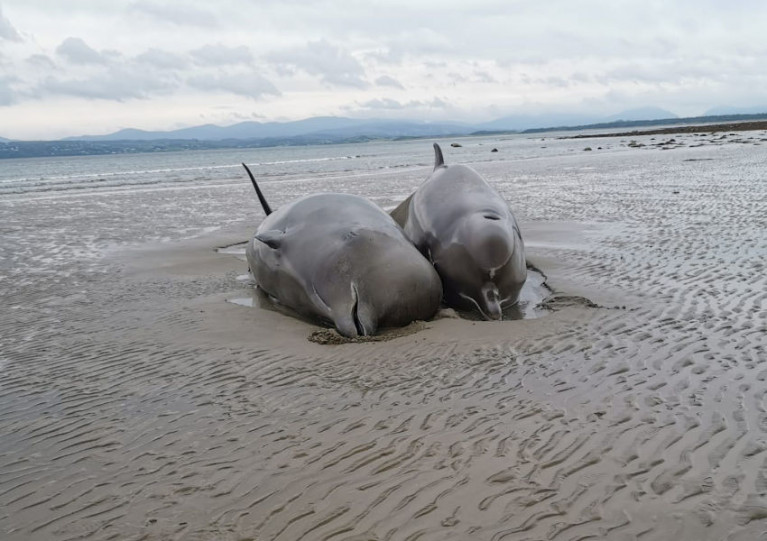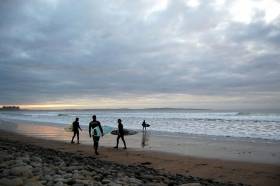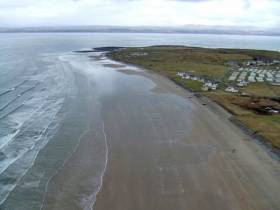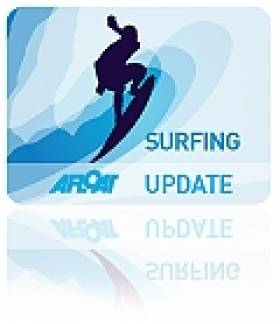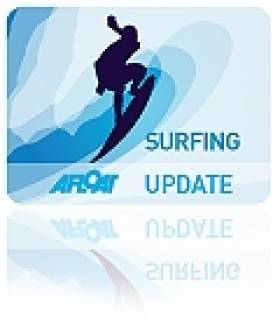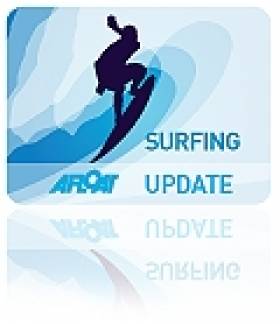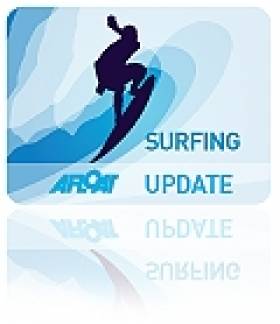Displaying items by tag: Rossnowlagh
Seven Bottlenose Whales Die On Donegal Beach In Ireland’s ‘Largest Mass Stranding’ Of Species
Seven northern bottlenose whales have died in what’s been described as the largest mass stranding of its kind in Ireland.
The Irish Whale and Dolphin Group (IWDG) confirmed the deaths to RTÉ News after the incident was reported on Rossnowlagh beach yesterday, Wednesday 19 August.
However, it was hoped that the eighth whale, which refloated in the shallows after the tide came in, would make it back to deeper waters of its own accord.
One whale seen here lifting its head to breathe has refloated itself and swam out with the incoming tide. We are cautiously optimistic it will make it out but IWDG will standby and check to see if it restrands. Video by Nicola Coyle/IWDG pic.twitter.com/8NRzsBPBQu
— Irish Whale and Dolphin Group (@IWDGnews) August 19, 2020
The IWDG urged the public to keep their distance from the whales after “upsetting news” that crowds had formed to take selfies next to the distressed marine wildlife.
“We know very little about them, but they are prone to mass strandings,” IWDG chief executive Simon Berrow told TheJournal.ie. “This is the largest mass stranding of this species ever in Ireland.”
Live stranding of a group of Northern Bottkrnose Whales at Rossknowlagh, Co Donegal this morning. Very little that can be done for these deep-diving offshore species. Please give them space and respect to die without too much stress. Trained IWDG members and NPWS on site. pic.twitter.com/oIjpSBpAKD
— Irish Whale and Dolphin Group (@IWDGnews) August 19, 2020
Fifty Years Of Irish Surfing Celebrated In Rossnowlagh Next Weekend
#Surfing - Fifty years of Irish surfing will be celebrated in Rossnowlagh this month, as the Donegal Democrat reports.
A gala dinner during the Rossnowlagh Intercounties next weekend (15-16 October) will mark five decades since the formation of what was then the Surf Club of Ireland by Kevin Cavey, who was influenced by images of surfing in a Reader’s Digest magazine.
Cavey himself inspired the legendary Britton clan in Rossnowlagh, and the family’s Sandhouse Hotel soon became a focal point for Irish wave-riding.
Fast-forward to today and Ireland, and the North West in particular, is among the world’s stop surfing destinations, producing world-class talent such as women’s surf pioneer Easkey Britton.
But the Irish Surfing Association’s golden jubilee dinner at the Sandhouse next Saturday 15 October is an opportunity to look back fondly at memories and happenings from Irish surfing’s earliest days. Irish Surfing has more HERE.
Donegal Surf School Turns To Peer Funding For Expansion
#Surfing - A Donegal surfing school has raised €20,000 for its expansion via peer-to-peer lending, as Donegal Now reports.
Fin McCool Surf School in Rossnowlagh aims to complete renovations of its new base in the town thanks to funds raised via Irish 'crowdlending' providers Linked Finance.
"Growing demand means it’s now time for us to invest further into our facilities and we’re delighted to be partnering with Linked Finance to refurbish our new premises," said owner Neil Britton, cousin of Irish women's surfing pioneer Easkey Britton.
Donegal Now has more on the story HERE.
Laois Surfers Hit the West Coast for Winter Surfing Season
#SURFING - Landlocked Laois may not be the known for its surfing prowess, but the Midlands county's waveriders have a busy winter season ahead of them, as the Leinster Express reports.
Laois Surf Club members regularly frequent the popular surfing spots of Ireland's west coast, and this autumn and winter is no exception.
First up was last weekend's Lahinch Longboard Contest organised by the West Coast Surf Club, to be followed by the annual inter-counties competition in Rossnowlagh, Co Donegal on 13-14 October.
“Being landlocked in Laois is a disadvantage but not a deterrent for those of us who enjoy and love surfing, it’s such good fun, healthy and you always feel great after a two-hour stint in the water,” said club chairman Steve Kidd.
The Leinster Express has more on the story HERE.
Clare Does the Double at Surf Lifesaving Nationals
#SURFING - The Irish Independent reports that the cream of Ireland's lifeguards comepeted at the National Surf Lifesaving Championships at Rossnowlagh, Co Donegal at the weekend.
Some 140 top lifesavers took part in events featuring a combination of surfing, surf-skiing and beach sprinting on the sun-and-surf-splashed strand - part of the preparations for November's World Lifesaving Championships in Australia.
Teams from Co Clare took the men's and over-30s titles - following the county's success at the European Lifesaving Championships in Sweden last month - while the women's top spot went to locals Donegal.
"Surf lifeguards have vital skills and every part of their training was on display," event organiser Seamus O'Neill of Irish Water Safety told the Independent.
Irish Team Finalised for Eurosurf 2011
The final line-up has been confirmed for Ireland's team at the European Surfing Championships in Bundoran later this week.
Rossnowlagh's John Britton joins his cousin Easkey Britton in the strong squad aiming for Eurosurf gold.
The rest of the team includes two-time Irish national champ Shane Meehan; former Irish Open Champion Stephen Kilfeather; and multiple-time women's body board champion Ashleigh Smith.
Also in the squad are Cain Kilcullen from Enniscrone; open surfer Oliver O’Flaherty; 2008 WSCS Longboard Champion Stephen Kelleher; Irish Student Champion Ronan Oertzen; Bundoran's Shauna Ward; body boarder Darragh McCarter; and Irish team veterans John McCurry and Richie Fitzgerald.
The action kicks off in Bundoran on 23 September with the competition running till 2 October.
Donegal Represents on Irish Team for Eurosurf 2011
Donegal will be represented by five surfers on the Irish team selected for the Eurosurf European Surfing Championships in Bundoran later this year.
Donegal Daily reports that Bundoran residents Ronan Oertzen (20), Shauna Ward (24), Darragh McCarter (25) and Richie Fitzgerald (36) will join 25-year-old Easkey Britton from Rossnowlagh on the team, after qualifying in a series of selection events.
One position on the team remains to be filled, and will be decided in a 'surf-off' between Rossnowlagh's John Britton and Keith O'Brien from Tramore at the Sea Sessions festival in Bundoran from 24-26 June.
The Irish Surf team will be coachedby Pascal Devine and managed by Stevie Burns, who have 40 years of surfing experience between them.
Donegal Daily has more on the story HERE.


























